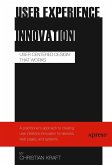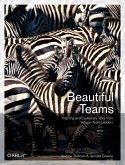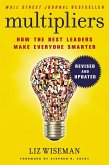The role of UX manager is vital -- it means leading a productive team, influencing businesses to adopt user-centered design, and delivering valuable products to customers. Few UX professionals who find themselves in management positions have formal training in management. More often than not they are promoted to a management position after having proven themselves as an effective and successful practitioner. Yet, as important as the position of manager is to the advancement of the field, there are no books that specifically address the needs of user-experience managers. Leading User Experience Management speaks directly to the UX manager and to the unique challenges one may face. It outlines the robust framework for how to be an effective UX manager, from creating a team, to orchestrating product development, to ensuring UX is not compromised, to achieving company buy-in on results. This acts as a checklist readers can use to make sure they have covered the bases as they think about how to build their own successful user experience programs. Written by an experienced UX manager and containing testimonials from many leading managers in the field, this proves for current and aspiring managers an invaluable reference loaded with ideas and techniques for managing user experience.
User Experience Management: Essential Skills for Leading Effective UX Teams deals with specific issues associated with managing diverse user experience (UX) skills, often in corporations with a largely engineering culture. Part memoir and part handbook, it explains what it means to lead a UX team and examines the management issues of hiring, inheriting, terminating, layoffs, interviewing and candidacy, and downsizing. The book offers guidance on building and creating a UX team, as well as equipping and focusing the team. It also considers ways of nurturing the team, from coaching and performance reviews to conflict management and creating work-life balance. Furthermore, it discusses the essential skills needed in leading an effective team and developing a communication plan. This book will be valuable to new managers and leaders, more experienced managers, and anyone who is leading or managing UX groups or who is interested in assuming a leadership role in the future.
User Experience Management: Essential Skills for Leading Effective UX Teams deals with specific issues associated with managing diverse user experience (UX) skills, often in corporations with a largely engineering culture. Part memoir and part handbook, it explains what it means to lead a UX team and examines the management issues of hiring, inheriting, terminating, layoffs, interviewing and candidacy, and downsizing. The book offers guidance on building and creating a UX team, as well as equipping and focusing the team. It also considers ways of nurturing the team, from coaching and performance reviews to conflict management and creating work-life balance. Furthermore, it discusses the essential skills needed in leading an effective team and developing a communication plan. This book will be valuable to new managers and leaders, more experienced managers, and anyone who is leading or managing UX groups or who is interested in assuming a leadership role in the future.
"Few have had the time or opportunity to get the kind of experience that Arnie Lund has had. Our very good fortune is that Arnie is the very essence of the reflective practitioner, and has the generosity of mind and spirit to turn his own career experience not into an autobiography or a "managing as I see it" book of tips. Instead, Dr. Lund takes a deep and wide look at the kinds of organizations and the different kinds of work that he has seen, from many vantage points, and uses that to engage a remarkable set of colleagues to reflect on, explain, and extend the practice of managing experience design. Arnie has been managing on the edge of the emerging fields involved here for as long as they've been emerging. The breadth of his experience and the discipline of his reflection on it makes for a remarkably comprehensive collection of issues." --Dr. Rick Robinson, Research Fellow, Design Continuum, Boston
"Lund, a user experience manager who has taught user-centered design and related topics at universities, explains how to be an effective user experience team manager. He draws from his experiences and those of other managers to focus on the specific issues associated with managing user experience skills and leading a team in corporations that are mostly engineering-based. He discusses building, equipping, focusing, nurturing, and creating a high-performance team, including defining a strategic framework, creating team identity, identifying and shaping shared values, growing the team as individuals, dealing with conflict, and balancing work and personal life, as well as transforming the organization." -- SciTech Book News
"Lund, a user experience manager who has taught user-centered design and related topics at universities, explains how to be an effective user experience team manager. He draws from his experiences and those of other managers to focus on the specific issues associated with managing user experience skills and leading a team in corporations that are mostly engineering-based. He discusses building, equipping, focusing, nurturing, and creating a high-performance team, including defining a strategic framework, creating team identity, identifying and shaping shared values, growing the team as individuals, dealing with conflict, and balancing work and personal life, as well as transforming the organization." -- SciTech Book News








